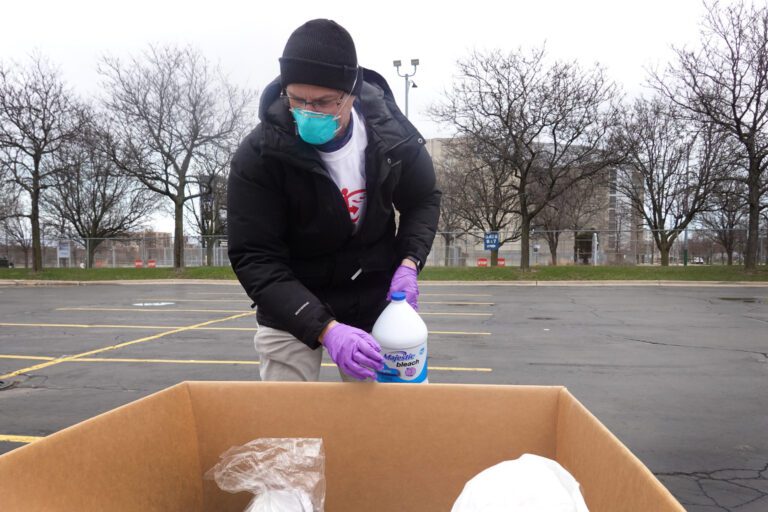Chlorine Dioxide: Rising Hopes and Ongoing Concerns
The belief that chlorine dioxide, a chemical often associated with bleach, could serve as a treatment for serious health conditions has gained momentum recently, particularly in light of Robert F. Kennedy Jr.’s influential role in American health policies. Advocates who previously faced intense scrutiny are now feeling more optimistic about the potential acceptance of their views.
A New Era for "Bleach Believers"
Kennedy’s Senate confirmation hearing in January sparked renewed enthusiasm among proponents of chlorine dioxide, often marketed as "Miracle Mineral Solution" or "CDS." During the hearing, he referenced various remedies, including chlorine dioxide, while commending President Trump for exploring diverse treatment options during the COVID-19 pandemic.
Noteworthy Past Mentions
- During a 2020 COVID-19 press conference, William Bryan, acting head of the Department of Homeland Security’s Science and Technology Directorate, stated that bleach could effectively kill the virus.
- This assertion led to controversial discussions when President Trump hinted at its potential injection use, a statement the White House later claimed was a joke.
Key Figures in the Movement
High-profile advocates such as Andreas Kalcker, who has faced legal troubles for promoting bleach as a treatment, and Michelle Herman, CEO of a chlorine dioxide nasal cleaner, have been vocal about their hopes for government approval.
Herman stated, “We are thrilled that RFK Jr. is in charge,” indicating how Kennedy’s role could potentially shift public opinion towards chlorine dioxide.
Claims and Controversies
Proponents claim that chlorine dioxide can treat ailments like:
- Autism
- Hepatitis
- HIV/AIDS
- Cancer
However, the medical community is adamant that there is no scientific evidence to support these claims. Ingesting chlorine dioxide can lead to severe health issues, including:
- Liver damage
- Vomiting
- Death
The U.S. Food and Drug Administration (FDA) permits chlorine dioxide for limited food contact but does not recognize it as a medical treatment.
Kennedy and the Advocacy Landscape
While Kennedy has not publicly endorsed chlorine dioxide, past discussions suggest a degree of openness. Dr. Pierre Kory, whose medical license was revoked for promoting ivermectin, claims he spoke with Kennedy about chlorine dioxide before the hearing.
Engaging in Conversations
In 2023, Herman reportedly spent 30 minutes discussing chlorine dioxide with Kennedy, comparing the backlash against it to the controversies surrounding ivermectin. “He listened intently, indicated he was not familiar with it, but was nonetheless very intrigued,” she remarked.
Regulatory Changes and Public Perception
As the debate around chlorine dioxide continues, some wonder if recent regulatory changes signal a shift. Kalcker noted that the FDA removed an online warning about chlorine dioxide, although a Health and Human Services representative clarified that the public health stance on its dangers remains unchanged.
Public Events and Conferences
The Truth Seekers Conference, held at Trump National Doral Miami, featured notable advocates of chlorine dioxide. Here, Kalcker touted CDS as “the biggest discovery in medicine of mankind,” showcasing the growing confidence within this community.
The Need for Ongoing Research
Despite the buzz, chlorine dioxide needs substantial research before approval for mainstream medical use. Rigorous studies and established standards from organizations like the Centers for Disease Control and Prevention (CDC) are crucial for evaluating its safety and efficacy.
Community Perspectives
Advocates like Herman believe that increased awareness of alternative treatments can lead to more leniency regarding their promotion. In contrast, activists like Fiona O’Leary highlight the serious health risks associated with chlorine dioxide, stating, “When chlorine dioxide is ingested, it causes serious, life-threatening illness.”
Conclusion: A Cautious Future
While publicity and advocacy efforts surrounding chlorine dioxide are gaining traction, significant skepticism and dire warnings persist. The future of chlorine dioxide as a medical treatment rests on thorough scientific evaluation and regulatory scrutiny. The conversations between health advocates and policymakers are set to shape the narrative, highlighting the importance of informed decision-making in public health.
For more information on the dangers of chlorine dioxide and ongoing research, visit the FDA’s website.


